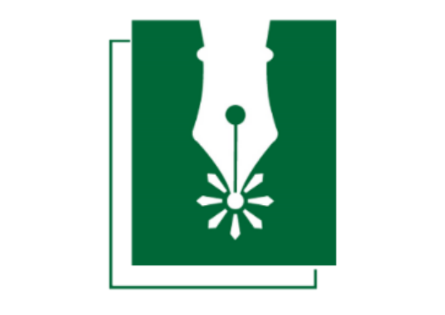The Unpaid Labor of Women in Barangay San Juan, Aliaga, Nueva Ecija Towards Sustainable Gender Equality Policy Reforms
Keywords:
SDG5, Gender Equality, Unpaid Work, Women in AgricultureAbstract
Globally, women have been a critical part of every household and agricultural operation. Despite their major contributions in the care economy in maintaining a healthy and sustainable food system, they remain largely invisible because, for a long time, economists depart from valuing unpaid work because of its non-economic value and social constructs. Barangay San Juan is one of the 26 barangays representing 7.47% of the total population of the municipality categorized by PhilAtlas (n.d.) as landlocked, referring to an area that is entirely surrounded by land. Before the agricultural mechanization, farmwomen in the barangay devoted 35 hours a week of unpaid care and 49 hours a week of unpaid farm work assisting the family in farm activities. The mechanization displaced farmwomen and deprived them of income opportunity while continuously providing domestic care to the family. This research aims to investigate the impact of unpaid labor for women in Barangay San Juan, Aliaga, and Nueva Ecija are adhering to Sustainable Development Goal 5 (SDG-5) by recognizing the value of unpaid work. A triangulation approach was employed through a qualitative and descriptive design to assess the effects of unpaid work on gender equality, which revealed a significant amount of time devoted by women in the care economy, hence dismissing their economic opportunity in the labor market. The observed absence led to the proposal of operational gender education, governance in resource mobilization, and inclusion of gender perspectives in ordinances that are critical in achieving equality to increase value recognition of women's labor.
References
Abdullah, M.N. (2020, July 2). Farming could empower millions of women across South Asia- here’s how. https://www.weforum.org/agenda/2020/07/farming-female-empowerment-agriculture-gender/
Bhuta, A. and Muralidharan, M. (2020). Not all time is money: Women’s burden of unpaid work. https://doi.org/10.1177/24556327211012843 DOI: https://doi.org/10.1177/24556327211012843
Cities and municipalities competitiveness index (2020). https://cmci.dti.gov.ph/lgu-profile.php?lgu=Aliaga
Dacuycuy, C.B. (2018). Crafting policies and programs for women in agriculture sector. https://www.pids.gov.ph/publication/policy-notes/crafting-policies-and-programs-for-women-in-the-agriculture-sector
Dacuycuy, C.B. (2020). Why and how should we value unpaid work? PIDS. ISSN 2508-0865. pidspn2003.pdf
Edralin, D. and Pastrana, R. (2023). Technical and vocational education and training in the Philippines: In retrospect and its future directions. https://bedanjournal.org/index.php/berj/article/view/50/47 DOI: https://doi.org/10.58870/berj.v8i1.50
Habito, C. (2023, March 28). When women lead. Inquirer.Net. https://opinion.inquirer.net/162019/when-women-lead
Halcon, N. and Viloria, R. (2023). Impact assessment of community engagement programs of San Beda University in Pactil, Bauko, Mountain Province. https://bedanjournal.org/index.php/berj/article/view/46/43 DOI: https://doi.org/10.58870/berj.v8i1.46
Hutchinson, D. (2023, June 5). Why it’s important to prioritize unpaid care work in the agriculture sector. CABI. https://blog.plantwise.org/2023/06/05/why-its-important-to-prioritize-unpaid-care-work-in-the-agriculture-sector/
International Labour Organization. (2019). The Business Case for Change. International Labour Organization. ISBN: 978-92-2-133168-1. Global report: Women in Business and Management: The business case for change (ilo.org).
International Labour Organization. (n.d.). ILO’s vision of decent work. About the ILO | The Challenges of Growth, Employment and Social Cohesion (imf.org)
International Labour Organization. (n.d). (2020, September 25). Millions of hours spent daily on unpaid work: Evidence from Aisa and the Pacific. https://ilostat.ilo.org/millions-of-hours-spent-daily-on-unpaid-work-evidence-from-asia-and-the-pacific/
Meiners, J & Olson, G. (1987). Household, paid, and unpaid work time of farm women. https://www.jstor.org/stable/584492 DOI: https://doi.org/10.2307/584492
Mondal, N. (2020). Book review: Ritu Dewan, Radha Sehgal, Aruna Kanchi and Swat Raju, Invisible Work, Invisible Workers: The Sub-Economies of Unpaid Work and Paid Work Action Research on Women’s Unpaid Labour. https://journals.sagepub.com/doi/epub/10.1177/0049085719901177 DOI: https://doi.org/10.1177/0049085719901177
Piovani, C. and Aydiner-Avsar, N. (2021). Work time matters for mental health: A gender analysis of paid and unpaid labor in the United States. https://doi.org/10.1177/04866134211035565 DOI: https://doi.org/10.1177/04866134211035565
PhilAtlas. (n.d.). Aliaga, Nueva Ecija. https://www.philatlas.com/luzon/r03/nueva-ecija/aliaga.html
PhilAtlas. (n.d.). San Juan, Municipality of Aliaga, Province of Nueva Ecija. https://www.philatlas.com/luzon/r03/nueva-ecija/aliaga/san-juan.html
Reddy, S. (2020). Measurement Brief: Unpaid work. https://socy.umd.edu/sites/socy.umd.edu/files/pubs/Unpaid%20Work%20Brief-3.pdf
Seedat, S. & Rondon, M. (2021). Women’s wellbeing and the burden of unpaid work. https://doi.org/10.1136/bmj.n1972 DOI: https://doi.org/10.1136/bmj.n1972
The World Bank. (31 Mar 2023). Agriculture and Food. https://www.worldbank.org/en/topic/agriculture/overview#:~:text=Agriculture%20can%20help%20reduce%20poverty,and%20work%20mainly%20in%20farming.
USAID. (2011, Mar 17). Tips for Conducting Gender Analysis at the Activity or Project Level. chrome-extension://efaidnbmnnnibpcajpcglclefindmkaj/https://pdf.usaid.gov/pdf_docs/Pnadt865.pdf
- PDF | 209
- Abstract Views | 455
Published
How to Cite
Issue
Section
Copyright (c) 2024 Josephine Prudente, Eric Pasquin

This work is licensed under a Creative Commons Attribution-NonCommercial-NoDerivatives 4.0 International License.











